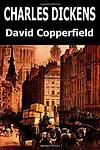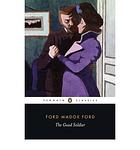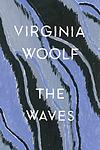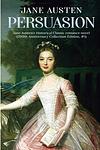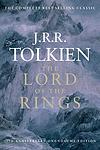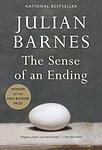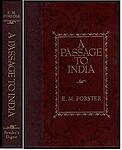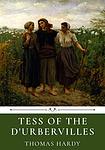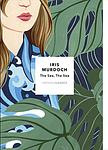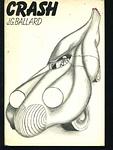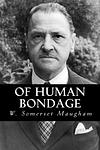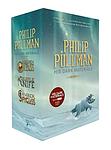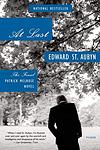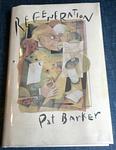The 100 Greatest British Novels
This is one of the 284 lists we use to generate our main The Greatest Books list.
-
Middlemarch by George Eliot
Set in the fictitious English town of Middlemarch during the early 19th century, the novel explores the complex web of relationships in a close-knit society. It follows the lives of several characters, primarily Dorothea Brooke, a young woman of idealistic fervor, and Tertius Lydgate, an ambitious young doctor, who both grapple with societal expectations, personal desires, and moral dilemmas. Their stories intertwine with a rich tapestry of other townsfolk, reflecting themes of love, marriage, ambition, and reform, making a profound commentary on the human condition.
-
To the Lighthouse by Virginia Woolf
This novel is a pioneering work of modernist literature that explores the Ramsay family's experiences at their summer home on the Isle of Skye in Scotland. The narrative is divided into three sections, focusing on a day in the family's life, a description of the house during their absence, and their return after ten years. The book is known for its stream of consciousness narrative technique and its exploration of topics such as the passage of time, the nature of art, and the female experience.
-
Mrs. Dalloway by Virginia Woolf
The novel chronicles a day in the life of Clarissa Dalloway, a high-society woman in post-World War I England, as she prepares for a party she is hosting that evening. Throughout the day, she encounters various characters from her past, including a former suitor and a shell-shocked war veteran. The narrative jumps back and forth in time and in and out of different characters' minds, exploring themes of mental illness, existentialism, and the nature of time.
-
Great Expectations by Charles Dickens
A young orphan boy, living with his cruel older sister and her kind blacksmith husband, has an encounter with an escaped convict that changes his life. Later, he becomes the protégé of a wealthy but reclusive woman and falls in love with her adopted daughter. He then learns that an anonymous benefactor has left him a fortune, leading him to believe that his benefactor is the reclusive woman and that she intends for him to marry her adopted daughter. He moves to London to become a gentleman, but his great expectations are ultimately shattered when he learns the true identity of his benefactor and the reality of his love interest.
-
Jane Eyre by Charlotte Bronte
The novel follows the life of Jane Eyre, an orphan who is mistreated by her relatives and sent to a charity school. As she grows up, Jane becomes a governess at Thornfield Hall, where she falls in love with the brooding and mysterious Mr. Rochester. However, she soon learns of a dark secret in his past that threatens their future together. The story is a profound exploration of a woman's self-discovery and her struggle for independence and love in a rigid Victorian society.
-
Bleak House by Charles Dickens
"Bleak House" is a complex narrative that critiques the British judiciary system through a long-running legal case known as Jarndyce and Jarndyce. The story follows the lives of numerous characters, including the kind-hearted Esther Summerson, her friends Richard and Ada, and their guardian, Mr. Jarndyce, who are all caught in the web of a legal dispute over an inheritance. The novel is known for its detailed depiction of the legal system, its vivid characters, and its exploration of social issues of the time.
-
Wuthering Heights by Emily Brontë
This classic novel is a tale of love, revenge and social class set in the Yorkshire moors. It revolves around the intense, complex relationship between Catherine Earnshaw and Heathcliff, an orphan adopted by Catherine's father. Despite their deep affection for each other, Catherine marries Edgar Linton, a wealthy neighbor, leading Heathcliff to seek revenge on the two families. The story unfolds over two generations, reflecting the consequences of their choices and the destructive power of obsessive love.
-
David Copperfield by Charles Dickens
This novel follows the life of its titular protagonist from his childhood to maturity. Born to a young widow, David endures a difficult childhood when his mother remarries a harsh and abusive man. After his mother's death, he is sent to a boarding school before being forced into child labor. As he grows, David experiences hardship, love, and loss, all the while meeting a colorful array of characters. The novel is a journey of self-discovery and personal growth, showcasing the harsh realities of 19th-century England.
-
Frankenstein by Mary Shelley
This classic novel tells the story of a young scientist who creates a grotesque but sentient creature in an unorthodox scientific experiment. The scientist, horrified by his creation, abandons it, leading the creature to seek revenge. The novel explores themes of ambition, responsibility, guilt, and the potential consequences of playing God.
-
Vanity Fair by William Makepeace Thackeray
This classic novel follows the lives of two contrasting women, the cunning and ruthless Becky Sharp and the sweet and naive Amelia Sedley, against the backdrop of English society during the Napoleonic Wars. The book is a satirical exploration of the obsession with wealth, status, and social climbing, and the moral bankruptcy that can result from such pursuits. The narrative weaves an intricate tale of love, betrayal, and redemption, exposing the vanity and hypocrisy of high society.
-
Pride and Prejudice by Jane Austen
Set in early 19th-century England, this classic novel revolves around the lives of the Bennet family, particularly the five unmarried daughters. The narrative explores themes of manners, upbringing, morality, education, and marriage within the society of the landed gentry. It follows the romantic entanglements of Elizabeth Bennet, the second eldest daughter, who is intelligent, lively, and quick-witted, and her tumultuous relationship with the proud, wealthy, and seemingly aloof Mr. Darcy. Their story unfolds as they navigate societal expectations, personal misunderstandings, and their own pride and prejudice.
-
Nineteen Eighty Four by George Orwell
Set in a dystopian future, the novel presents a society under the total control of a totalitarian regime, led by the omnipresent Big Brother. The protagonist, a low-ranking member of 'the Party', begins to question the regime and falls in love with a woman, an act of rebellion in a world where independent thought, dissent, and love are prohibited. The novel explores themes of surveillance, censorship, and the manipulation of truth.
-
The Good Soldier by Ford Madox Ford
"The Good Soldier" is a tragic tale of two seemingly perfect couples: an American couple and an English couple, who meet at a German spa and share a nine-year friendship. However, underneath the surface, their relationships are far from ideal, filled with infidelity, lies, and deceit. The story is narrated by the American husband, who is the last to realize the intricate web of affairs and betrayals amongst the group. The novel explores themes of love, passion, and the destruction that can result from suppressed emotions and societal pressures.
-
Clarissa by Samuel Richardson
The novel revolves around the beautiful and virtuous Clarissa Harlowe, a young woman from a wealthy family who is pursued by the villainous Robert Lovelace. Despite her attempts to maintain her virtue and independence, she is tricked into running away with Lovelace and is subsequently held against her will. Lovelace's relentless pursuit and Clarissa's steadfast resistance culminate in her tragic end, making the novel a complex exploration of power, morality, and the vulnerability of women in society.
-
Atonement by Ian McEwan
Atonement is a powerful novel that explores the consequences of a young girl's false accusation. The narrative follows the lives of three characters, the accuser, her older sister, and the sister's lover, who is wrongly accused. This false accusation irrevocably alters their lives, leading to the accused's imprisonment and eventual enlistment in World War II, while the sisters grapple with guilt, estrangement, and their own personal growth. The novel is a profound exploration of guilt, forgiveness, and the destructive power of misinterpretation.
-
The Waves by Virginia Woolf
"The Waves" is a novel that follows the lives of six friends from childhood to old age, using an innovative narrative style that intertwines their individual voices into a collective stream of consciousness. The novel explores themes of individual identity, the passage of time, and the human condition, presenting a unique and poetic meditation on the nature of life and death.
-
Howards End by E. M. Forster
This novel explores class relations and conflicting values in turn-of-the-century England. The narrative revolves around three families: the wealthy, capitalist Wilcoxes; the cultured, idealistic Schlegels; and the lower-middle class Basts. As their lives intertwine, the story grapples with themes of wealth, love, and death, and the struggle for personal connection in an increasingly impersonal society. The titular "Howards End" is a country home, and it becomes a symbol of England's past, present, and future.
-
The Remains of the Day by Kazuo Ishiguro
The novel is a poignant tale of an English butler, Stevens, who reflects on his life and career during a road trip through the English countryside. As he delves into his past, he reveals his unquestioning loyalty to his former employer, Lord Darlington, and his unexpressed love for the housekeeper, Miss Kenton. The narrative explores themes of dignity, duty, and regret, as Stevens comes to terms with his unquestioning devotion to his employer and the missed opportunities in his personal life.
-
Emma by Jane Austen
The novel revolves around Emma, a well-meaning but disaster-prone matchmaker, who ignores her own romantic feelings while setting out to find a suitor for her friend Harriet. Her efforts cause more problems than solutions as she leaves a trail of mishaps behind her. As her plans go awry, Emma realizes that she herself may be the one in love. The book is a classic exploration of social manners, love, and marriage in 19th-century England.
-
Persuasion by Jane Austen
This classic novel revolves around the life of Anne Elliot, a woman of 27 who is unmarried and living with her vain, snobbish, and foolish family who are on the brink of financial ruin. Seven years prior, she had been persuaded to reject a marriage proposal from the man she loved, a poor but ambitious naval officer named Frederick Wentworth. When he returns from the war a wealthy and successful captain, old feelings are rekindled. The story follows Anne's journey towards self-realization and second chances at love amidst the complexities of her social class.
-
Heart of Darkness by Joseph Conrad
This classic novel follows the journey of a seaman who travels up the Congo River into the African interior to meet a mysterious ivory trader. Throughout his journey, he encounters the harsh realities of imperialism, the brutal treatment of native Africans, and the depths of human cruelty and madness. The protagonist's journey into the 'heart of darkness' serves as both a physical exploration of the African continent and a metaphorical exploration into the depths of human nature.
-
Tom Jones by Henry Fielding
This classic novel tells the story of Tom Jones, a charming and good-hearted but impulsive young man, who is expelled from his adoptive family home due to his wild behavior and love for the beautiful Sophia Western. His journey through 18th-century England is filled with adventures, misadventures, and a colorful cast of characters, as he struggles with his identity and seeks redemption. The narrative explores themes of class, virtue, and morality, and is known for its humor, social satire, and vivid characterization.
-
Jude the Obscure by Thomas Hardy
This novel tells the story of Jude Fawley, a working-class young man who dreams of becoming a scholar. The traditional class structure in 19th-century England prevents him from realizing his dream and his only solace is his love for his cousin, Sue Bridehead. Their scandalous relationship and the tragic events that follow form the heart of the narrative, which explores themes of love, class, religion, and morality.
-
The Golden Notebook by Doris Lessing
The novel centers around a woman named Anna Wulf, a writer who keeps four notebooks, each representing a different aspect of her life: her experiences in Africa, her current life in London, a novel she is writing, and her personal experiences. As Anna's mental state deteriorates, she attempts to unify her fragmented self in a fifth notebook, the golden notebook. The novel explores themes of mental breakdown, communism, the changing role of women, and the fear of nuclear war.
-
White Teeth by Zadie Smith
This novel follows the lives of two friends, a working-class Englishman and a Bangladeshi Muslim, living in London. The story explores the complex relationships between people of different races, cultures, and generations in modern Britain, with themes of identity, immigration, and the cultural and social changes that have shaped the country. The narrative is enriched by the characters' personal histories and the historical events that have shaped their lives.
-
The Lord of the Rings by J. R. R. Tolkien
This epic high-fantasy novel centers around a modest hobbit who is entrusted with the task of destroying a powerful ring that could enable the dark lord to conquer the world. Accompanied by a diverse group of companions, the hobbit embarks on a perilous journey across Middle-earth, battling evil forces and facing numerous challenges. The narrative, rich in mythology and complex themes of good versus evil, friendship, and heroism, has had a profound influence on the fantasy genre.
-
Robinson Crusoe by Daniel Defoe
The book is a classic adventure novel about a man who spends 28 years on a remote tropical island near Trinidad, encountering cannibals, captives, and mutineers before being rescued. The story is noted for its realistic portrayal of the protagonist's physical and psychological development and for its detailed depiction of his attempts to create a life for himself in the wilderness. The novel has been interpreted as an allegory for the development of civilization, as well as a critique of European colonialism.
-
Villette by Charlotte Bronte
The novel follows the life of Lucy Snowe, a young Englishwoman with no family or prospects, who moves to the fictional French town of Villette to teach at a girls' school. As she navigates her new life, she becomes entangled in a love triangle with a fiery professor and a charismatic doctor. The story explores themes of isolation, independence, and the constraints of societal expectations for women.
-
Brick Lane by Monica Ali
This novel tells the story of a Bangladeshi woman named Nazneen who moves to London at the age of 18 for an arranged marriage to a man 20 years her senior. The narrative explores her life in the city, her struggles with her unhappy marriage, her affair with a young radical, and her attempts to reconcile her traditional upbringing with her new surroundings. The book also explores the lives of immigrants in the UK, the clash of cultures, and the struggle for identity.
-
Moll Flanders by Daniel Defoe
"Moll Flanders" is a novel about the life of a woman in the 17th century who is born in Newgate Prison to a mother who is a convict. Moll is raised by gypsies until she is old enough to take care of herself. She becomes a servant, marries multiple times, becomes a thief, and eventually ends up in Newgate Prison herself. Despite her tumultuous life, she maintains her spirit and cunning, using both to navigate the harsh realities of her world. The book is a commentary on the social and economic realities of the time, particularly for women.
-
The End of the Affair by Graham Greene
Set in London during and just after World War II, the novel revolves around a love affair between Maurice Bendrix, a writer, and Sarah Miles, the wife of a civil servant. The story is narrated by Bendrix, who is obsessed with Sarah and hires a private investigator to follow her when he suspects she's having another affair. The novel explores themes of love, hate, and the existence of God, with Sarah's faith playing a significant role in the narrative.
-
A Room With a View by E. M. Forster
Set in Italy and England, the novel tells the story of a young English woman, Lucy Honeychurch, who travels to Florence with her older cousin and chaperone. During her stay in Italy, Lucy meets and falls in love with a free-spirited man, but due to societal pressures, she becomes engaged to a wealthy but pretentious man back home in England. The novel explores themes of societal norms, personal growth, and the struggle between heart and mind as Lucy must decide between conforming to societal expectations or following her own desires.
-
The Wind in the Willows by Kenneth Grahame
"The Wind in the Willows" is a charming tale about the adventures of four anthropomorphic animal friends - Mole, Rat, Badger, and the rebellious and extravagant Toad. The story is set in the idyllic English countryside and explores themes of friendship, exploration, and respect for nature. The narrative is marked by Toad's reckless behavior, his obsession with motor cars, and his eventual redemption. The other characters, with their contrasting personalities, bring balance and depth to the story.
-
Never Let Me Go by Kazuo Ishiguro
The novel is a haunting tale of three friends, who grow up together at a seemingly idyllic English boarding school. As they mature, they discover a dark secret about their school and the purpose of their existence, which is to become organ donors for the rest of society. The story is a profound exploration of what it means to be human, the morality of scientific innovation, and the heartbreaking reality of love and loss.
-
Remainder by Tom McCarthy
After a traumatic accident leaves him with a large settlement and no memory of his past, the protagonist becomes obsessed with reenacting and reconstructing fragments of memories and events that he can't fully remember. He uses his newfound wealth to recreate these scenes in exact detail, hiring actors and building sets, in a desperate attempt to regain a sense of authenticity and reality. As his obsession escalates, the boundary between the recreated experiences and actual reality begins to blur, leading to a shocking climax.
-
A Dance to the Music of Time by Anthony Powell
"A Dance to the Music of Time" is a twelve-volume cycle that follows the life of the protagonist, a man from the upper-middle class in England, from his school days to his old age. The series provides a detailed and satirical depiction of British society and its changes over several decades, from the 1920s to the 1970s. The narrative is filled with a rich cast of characters from different social classes and backgrounds, whose lives intersect in various ways over time.
-
Decline and Fall by Evelyn Waugh
This novel follows the story of Paul Pennyfeather, a young man studying at Oxford University who is unfairly expelled and forced to take a job as a teacher at a chaotic school in Wales. His life takes a turn when he meets a wealthy widow and gets sucked into the high society lifestyle, only to be betrayed and sent to prison. The narrative is a satirical critique of the British class system, education, and the moral corruption of the rich.
-
The Passion by Jeanette Winterson
"The Passion" is a historical novel set during the Napoleonic Wars and told from the perspectives of two unique characters: a French soldier who serves in Napoleon’s army and a Venetian woman with webbed feet who works as a casino worker. The narrative explores themes of love, passion, identity, and fate as the two characters' lives intertwine in unexpected ways. The book is renowned for its magical realism and lyrical prose, offering a poetic exploration of human desire and the nature of love.
-
The Sense of an Ending by Julian Barnes
This novel revolves around a middle-aged man, Tony Webster, who is forced to reevaluate his understanding of his past when he unexpectedly receives a lawyer's letter that drags him back into his complex history with his university friends, Adrian and Veronica. The book explores themes of memory, history, and time, showing how our understanding of the past can be distorted by our own perceptions and emotions. As Tony delves into his past, he realizes that his memories may not be as accurate as he once believed, leading to a surprising revelation.
-
Alice's Adventures in Wonderland by Lewis Carroll
This novel follows the story of a young girl named Alice who falls down a rabbit hole into a fantastical world full of peculiar creatures and bizarre experiences. As she navigates through this strange land, she encounters a series of nonsensical events, including a tea party with a Mad Hatter, a pool of tears, and a trial over stolen tarts. The book is renowned for its playful use of language, logic, and its exploration of the boundaries of reality.
-
Dombey and Son by Charles Dickens
"Dombey and Son" is a classic novel that explores the life of a wealthy and powerful businessman who is obsessed with maintaining his family's prestige. He places high hopes on his son while neglecting his daughter, only to face devastating loss and disappointment. The narrative is a complex web of relationships, social critiques, and vivid characters, all set against the backdrop of Victorian England. The story ultimately underscores the importance of love, compassion, and familial bonds over wealth and social status.
-
Brighton Rock by Graham Greene
"Brighton Rock" is a thrilling crime novel set in 1930s Brighton, revolving around the life of a young gangster, who is involved in a series of violent acts and murders. The narrative also explores the themes of Catholicism, morality, and the nature of sin, as the protagonist struggles with his religious beliefs and the guilt of his actions. The story is further complicated by the involvement of a naive young woman who falls in love with the gangster, unaware of his dark side.
-
The Swimming-Pool Library by Alan Hollinghurst
The novel follows a young, privileged, and carefree gay man living in London. His life of leisure is interrupted when he saves the life of an elderly man, who in return asks him to write his biography. As he delves into the man's past, he uncovers a hidden history of gay life that is much darker and less accepted than the one he is used to, challenging his understanding of personal and societal progress.
-
Wolf Hall by Hilary Mantel
The novel is a historical fiction set in the 1500s, during the reign of King Henry VIII. The story is told from the perspective of Thomas Cromwell, a man of humble beginnings who rises to become the King's chief minister. The narrative explores the political and religious upheavals of the time, including King Henry's break with the Catholic Church and his controversial marriage to Anne Boleyn. The protagonist's cunning, ambition, and survival instincts are central to the plot as he navigates the treacherous waters of the Tudor court.
-
The Little Stranger by Sarah Waters
"The Little Stranger" is a gothic novel set in post-World War II Britain, where a country doctor becomes involved with an aristocratic family living in a crumbling mansion. The doctor becomes increasingly entangled with the family as he attempts to unravel the mystery of a malevolent presence that seems to be causing accidents and illness. As the story unfolds, it becomes clear that the haunting may be more psychological than supernatural, reflecting the decline of the British class system and the trauma of war.
-
Midnight's Children by Salman Rushdie
The novel tells the story of Saleem Sinai, who was born at the exact moment when India gained its independence. As a result, he shares a mystical connection with other children born at the same time, all of whom possess unique, magical abilities. As Saleem grows up, his life mirrors the political and cultural changes happening in his country, from the partition of India and Pakistan, to the Bangladesh War of Independence. The story is a blend of historical fiction and magical realism, exploring themes of identity, fate, and the power of storytelling.
-
Tristram Shandy by Laurence Sterne
The novel is a humorous, rambling narrative that chronicles the life of Tristram Shandy. The story is filled with digressions, anecdotes, and eccentric characters, as Tristram often interrupts his own tale to interject commentary or to recount stories from his family's past. Despite the seemingly haphazard structure, the novel is a clever exploration of narrative form and a satirical critique of traditional biographies and novels.
-
Lucky Jim by Kingsley Amis
"Lucky Jim" is a comic novel that follows the life of Jim Dixon, a young and disillusioned lecturer at a provincial British university. Struggling with his job and his pretentious boss, Dixon navigates through a series of humorous and often absurd situations, including a disastrous public lecture and a chaotic weekend at his boss's house. The novel satirizes the snobbishness and hypocrisy of the academic world, and explores themes of class, ambition, and the struggle to find personal authenticity in a conformist society.
-
Possession by A. S. Byatt
"Possession" is a novel that interweaves two storylines, one set in contemporary times and the other in the Victorian era. The contemporary plot follows two academics who uncover a secret love affair between two 19th-century poets, while the Victorian storyline presents the clandestine romance itself. As the modern scholars delve deeper into the past, they find themselves falling in love as well, mirroring the historical romance they are researching. The book explores themes of love, passion, and the power of the written word.
-
A Passage to India by E. M. Forster
The novel takes place in British-ruled India, where the cultural divide between the British and the Indians is explored. The story focuses on the experiences of an Indian Muslim, Dr. Aziz, and his interactions with an English woman, Miss Quested, and her elderly friend, Mrs. Moore. After an expedition to the Marabar Caves, Miss Quested accuses Dr. Aziz of assault, leading to a trial that deepens the racial tensions and prejudices between the colonizers and the colonized. The novel is a critique of British imperialism and a study of the cultural and racial misunderstandings and ill-will between the British and the Indian people.
-
Tess of the d'Urbervilles by Thomas Hardy
This is a tragic tale of a young woman named Tess who comes from a poor family in rural England. Tess is sent to work for a wealthy family, where she is seduced by a man who abandons her after she becomes pregnant. The baby dies, and Tess is ostracized by her community. She falls in love with a kind man, but when she confesses her past, he rejects her. Desperate and heartbroken, Tess murders her former seducer and is eventually captured and executed. The novel explores themes of fate, injustice, and the oppressive sexual morals of its time.
-
New Grub Street: A Novel by George Gissing
"New Grub Street" is a novel set in the literary and journalistic circles of 1880s London. The story revolves around two writers, one who seeks wealth and status and the other who values artistic integrity over material success. It provides a stark and realistic portrayal of the struggles faced by writers, including financial hardship, the pressure to compromise artistic integrity for commercial success, and the destructive effects of these pressures on personal relationships and mental health. The book is a critique of the commercialization of literature and journalism during the period, and a commentary on the conflict between art and commerce.
-
Wide Sargasso Sea by Jean Rhys
This novel is a postcolonial prequel to "Jane Eyre," exploring the life of Mr. Rochester's mad wife, Bertha. Set in Jamaica during the 1830s, it follows the story of Antoinette Cosway, a white Creole heiress, from her youth in the Caribbean to her unhappy marriage and move to England. Caught in a society that both rejects and exoticizes her, Antoinette is ultimately driven into madness by her oppressive husband and the haunting legacy of colonialism.
-
NW: A Novel by Zadie Smith
This novel follows the lives of four Londoners - Leah, Natalie, Felix, and Nathan - as they navigate adulthood in the diverse, vibrant, and sometimes volatile neighborhood where they grew up. The narrative explores themes of identity, class, friendship, and the complex nature of urban life, intertwining the characters' stories in a way that reflects the interconnectedness and fragmentation of city living.
-
Gulliver's Travels by Jonathan Swift
This classic satire follows the travels of a surgeon and sea captain who embarks on a series of extraordinary voyages. The protagonist first finds himself shipwrecked on an island inhabited by tiny people, later discovers a land of giants, then encounters a society of intelligent horses, and finally lands on a floating island of scientists. Through these bizarre adventures, the novel explores themes of human nature, morality, and society, offering a scathing critique of European culture and the human condition.
-
Oranges are not the only Fruit by Jeanette Winterson
This novel follows the coming-of-age story of a young girl adopted by a religious fanatic, who believes her daughter is destined to become a missionary. As the protagonist grows up, she begins to question her mother's strict religious beliefs and discovers her own sexuality. The book explores themes of identity, love, and religion, as the protagonist grapples with her place in the world and her evolving understanding of herself.
-
Parade's End by Ford Madox Ford
The novel chronicles the life of Christopher Tietjens, an officer in the British Army during World War I, and his complex relationships with two women: his adulterous wife Sylvia and a young suffragette named Valentine. The story is set against the backdrop of a changing society and the devastation of war, exploring themes of duty, honor, and the struggle between traditional values and modernism.
-
Loving by Henry Green
"Loving" is a novel set in an Irish castle during World War II, focusing on the lives of the servants who work there. The narrative provides a detailed and intimate exploration of the relationships, gossip, and everyday routines of the domestic staff, while the war remains a distant threat. The book is known for its unique use of language and dialogue, as well as its exploration of class dynamics.
-
The Line of Beauty by Alan Hollinghurst
Set in the 1980s during the era of Margaret Thatcher's conservative government in Britain, this novel follows the life of a young gay man named Nick Guest. Coming from a middle-class background, he moves into the home of his wealthy friend's family and becomes infatuated with the opulence and power of the upper class. As he navigates his way through this new world, he also explores his sexuality, all while dealing with the societal and political implications of the AIDS crisis.
-
Sons and Lovers by D. H. Lawrence
"Sons and Lovers" is a semi-autobiographical novel that explores the complex relationships between a miner's wife, her husband, and their two sons. The story focuses on the intense emotional and psychological bonds between the mother and her sons, as well as the struggles they face in their romantic relationships due to their deep attachment to their mother. The novel delves into themes of class, love, sexuality, and the oedipal complex, presenting a vivid picture of working-class life in early 20th century England.
-
The Sea, The Sea by Iris Murdoch
A successful and renowned London theatre director retires to a secluded house by the sea in an attempt to write his memoirs. His peaceful solitude is disrupted when he encounters his first love from decades ago and becomes obsessed with winning her back. As he spirals into self-delusion and madness, the narrative explores themes of love, obsession, and the subjective nature of reality.
-
Animal Farm by George Orwell
"Animal Farm" is a satirical fable set on a farm where the animals revolt, overthrow their human farmer, and take over the running of the farm for themselves. The story is an allegory of the Russian Revolution and the rise of Stalin, and the tale is told by the animals that inhabit the farm, primarily pigs who become the ruling class. Despite their initial attempts at creating an equal society, corruption and power ultimately lead to a regime as oppressive as the one they overthrew.
-
The Prime of Miss Jean Brodie by Muriel Spark
The novel is set in 1930s Edinburgh and follows the story of six girls under the tutelage of an unconventional teacher, Miss Jean Brodie. Miss Brodie, in her prime, takes it upon herself to educate the girls about life, love, politics, and art, often disregarding the traditional curriculum. The narrative explores the influence of Miss Brodie on the girls, the consequences of her nonconformist teachings, and the ultimate betrayal that leads to her downfall.
-
The Way We Live Now by Anthony Trollope
The book is a satirical analysis of the moral corruption in London during the 1870s. It centers around Augustus Melmotte, a fraudulent financier, who moves his family to London in an attempt to climb the social ladder. His daughter, Marie, falls in love with Sir Felix Carbury, a penniless playboy, while his wife is desperate to be accepted into London society. The book explores themes of wealth, power, love, and greed, and is a biting critique of the era's obsession with status and money.
-
Orlando: A Biography by Virginia Woolf
The novel follows the life of a young nobleman in Elizabethan England who inexplicably transforms into a woman at the age of 30 and lives on for three centuries without aging. Throughout the centuries, the protagonist experiences various historical events, engages in relationships with both men and women, and explores the complexities of gender identity and sexuality. The book is an exploration of the fluidity of gender and time, as well as a critique of societal norms and expectations.
-
Sense and Sensibility by Jane Austen
This classic novel explores the lives of the Dashwood sisters, Elinor and Marianne, as they navigate love, heartbreak, and societal expectations in 18th-century England. The two sisters, one characterized by practicality and restraint (sense) and the other by emotional intensity and romanticism (sensibility), must negotiate their paths through a world where marriage often has more to do with wealth and social status than with love. The story is a sharp critique of the limitations placed on women in a rigidly patriarchal society.
-
Crash: A Novel by J. G. Ballard
The novel revolves around a man who becomes sexually aroused by staging and participating in real car-crashes, a fetish that spirals further out of control when he meets a like-minded woman. It explores the disturbing intersection of technology, sexuality, and violence, pushing the boundaries of social norms and challenging the reader's perception of reality.
-
A Clockwork Orange by Anthony Burgess
This novel follows the life of a violent young man named Alex, who is part of a youth subculture in a dystopian future England. Alex and his gang engage in a nightmarish spree of rape, assault, and robbery, until he is arrested and subjected to a psychological experiment by the government to "cure" him of his violent tendencies. The novel explores themes of free will, morality, and the nature of evil, while using a unique slang language invented by the author.
-
Nostromo by Joseph Conrad
Set in the fictional South American country of Costaguana, the novel explores the turbulent political and social changes of the era through the eyes of Nostromo, a respected and resourceful Italian expatriate. Nostromo's loyalty and heroism are tested when he is tasked with hiding a cache of silver from a revolutionary government. As the political landscape shifts, he finds himself caught in a web of moral dilemmas and life-altering decisions. The novel is a profound examination of power, corruption, and the human condition.
-
Daniel Deronda by George Eliot
"Daniel Deronda" is a novel that explores the intersecting lives of its two main characters: Gwendolen Harleth, a beautiful but shallow young woman who is forced into an oppressive marriage to escape poverty, and Daniel Deronda, a compassionate and intelligent young man who, after being raised by a wealthy English gentleman, discovers his Jewish heritage. The story delves into themes of love, identity, and moral responsibility, set against the backdrop of Victorian England's societal norms and prejudices.
-
Old Filth by Jane Gardam
The novel follows the life of Sir Edward Feathers, a successful but emotionally stunted barrister, who is known by the nickname "Old Filth" (Failed in London, Try Hong Kong). The protagonist's life is traced from his birth in Malaya, his upbringing in Wales, to his successful law career in Hong Kong, and retirement in England. The narrative explores themes of love, loss, and the lasting effects of the British Empire, while revealing the personal history and emotional landscape of a man who has spent his life avoiding introspection and emotional connections.
-
The Heart of the Matter by Graham Greene
The novel follows the story of a British colonial police officer stationed in Sierra Leone during World War II. He is an honest and diligent man but finds himself in a moral crisis when he is torn between his duty and his love for another woman. He is caught in a spiral of deceit, corruption, and betrayal that leads to his tragic end. The narrative delves into themes of guilt, faith, betrayal, and moral paradoxes.
-
The Blue Flower by Penelope Fitzgerald
"The Blue Flower" is a historical novel centered around the life of Friedrich von Hardenberg, an 18th-century German poet and philosopher, known as Novalis. The story focuses on his philosophical development and his romantic relationship with a 12-year-old girl, Sophie von Kühn. It explores themes of love, philosophy, and the pursuit of knowledge, all set against the backdrop of the late Enlightenment period in Germany.
-
The Mayor of Casterbridge by Thomas Hardy
The Mayor of Casterbridge is a tragic novel set in the fictional town of Casterbridge, based on Dorchester in the English county of Dorset. The story follows the life of Michael Henchard, a skilled hay-trusser who, in a fit of drunken anger, sells his wife and daughter at a fair. When he sobers up, he is filled with regret and swears off alcohol for 21 years. He works hard and eventually becomes a successful businessman and the mayor of Casterbridge. However, his past returns to haunt him when his wife and daughter come back into his life, leading to a series of events that result in his downfall.
-
Women in Love by D. H. Lawrence
"Women in Love" is a novel that explores the complex relationships of two sisters, Ursula and Gudrun Brangwen, as they navigate their passions, desires, and connections with two men, Rupert Birkin and Gerald Crich, in post-World War I England. The novel delves deep into the psychological aspects of love, questioning traditional romantic love and proposing a more modern, individualistic approach to relationships. It also explores themes of industrialization, modernity, and the nature of human existence.
-
Small Island by Andrea Levy
"Small Island" is a historical novel that explores the intertwined histories of Jamaica and the UK, as well as the themes of race, empire, and migration. The story is set in 1948 and is told from four different perspectives: two Jamaican immigrants, Hortense and Gilbert, who move to England after World War II, and an English couple, Queenie and Bernard. The narrative explores the racial tension, discrimination, and culture shock that the immigrants face in their new home, while also delving into the complexities of war, identity, and the British Empire.
-
Of Human Bondage by W. Somerset Maugham
The novel follows the life of Philip Carey, a club-footed orphan who struggles with his disability and his passionate and unrequited love for a destructive woman. His journey takes him from a strict religious upbringing in England to an adventurous life in Paris where he attempts to become an artist before finally settling into a career in medicine. The story is a powerful exploration of human desire, ambition, and the search for meaning in life.
-
A House for Mr. Biswas by V. S. Naipaul
The novel narrates the life of Mr. Biswas, a man of Indian descent living in Trinidad, who struggles against poverty and adversity to achieve personal independence and to build a home for himself and his family. Born into a poor family and married into an oppressive one, he constantly strives for autonomy and identity against the backdrop of post-colonial Trinidad. His dream of owning his own house becomes a symbol of his desire for self-determination and respect in a society that often denies him both.
-
His Dark Materials by Philip Pullman
"His Dark Materials" is a fantasy trilogy that follows the journey of a young girl named Lyra Belacqua and her daemon, Pantalaimon, across parallel universes. Throughout their adventures, they encounter a variety of mythical creatures, confront religious and political systems, and grapple with complex themes such as free will, original sin, and the nature of consciousness. The series also delves into the mysteries of Dust, a strange particle integral to the multiverse's function.
-
Excellent Women by Barbara Pym
Set in post-World War II England, the novel centers around a spinster named Mildred Lathbury, who lives a quiet life, devoted to her church and helping others. Her life is disrupted when a young couple moves into her building and she becomes embroiled in their marital troubles. The novel explores themes of societal expectations for women, the role of religion in everyday life, and the complexities of human relationships.
-
The Jewel In The Crown by Paul Scott
Set during the final days of the British Raj in India, this novel explores the political and personal repercussions of a young British woman's rape in a fictional Indian city. The incident stirs up racial tensions and leads to a series of events that reveal the deep-seated prejudices and complexities of colonial rule. The story is a complex blend of perspectives, weaving together the lives of its diverse cast of characters, and offering a critical examination of the British colonial experience.
-
Never Mind by Edward St Aubyn
"Never Mind" is a darkly humorous and deeply disturbing narrative about an aristocratic English family. The story primarily focuses on a five-year-old boy who is the victim of his sadistic and sexually abusive father, while his mother, an alcoholic, ignores the situation. The narrative also provides a scathing critique of the British upper class through its exploration of the family's decadent lifestyle and morally corrupt behavior.
-
Bad News by Edward St Aubyn
"Bad News" is the second novel in a series that follows the life of Patrick Melrose, a man from a wealthy but deeply troubled family. In this installment, Patrick, now 22, must travel to New York to collect his father's ashes. As he navigates the city, he struggles with his addiction to drugs and alcohol, and grapples with the traumatic memories of his abusive father. The narrative provides a darkly comic and deeply poignant exploration of addiction, trauma, and the struggle for redemption.
-
Some Hope by Edward St Aubyn
"Some Hope" is a darkly humorous novel that delves into the life of a man who struggles to overcome his traumatic past and drug addiction. He is invited to a lavish party filled with Britain's aristocracy, where he must confront his past and deal with the pretentious and shallow society he is part of. The narrative explores themes of abuse, recovery, and the struggle to find redemption and hope amidst despair.
-
Mother's Milk by Edward St Aubyn
The novel follows the life of Patrick Melrose, a man battling with his drug addiction and his troubled relationship with his parents. Patrick tries to come to terms with his mother’s decision to leave her estate to a New Age foundation rather than to him, her only son. The story delves into the complexities of inheritance, parenthood, and the lasting impact of childhood trauma. The narrative shifts between the perspectives of Patrick, his wife, and their two young sons, providing a multi-dimensional view of the family's struggles.
-
At Last by Edward St Aubyn
"At Last" is the final installment in a five-part series that follows the life of a man from a dysfunctional, upper-class English family. The protagonist attends his mother's funeral, where he reflects on his traumatic childhood, filled with abuse and neglect, and his subsequent struggles with drug addiction. Throughout the day, he interacts with a host of characters from his past and present, leading to introspection and revelations about his life and relationships. The book presents a scathing critique of the British aristocracy, while also exploring themes of recovery, redemption, and the possibility of change.
-
Barchester Towers by Anthony Trollope
"Barchester Towers" is a satirical novel that explores the power struggles within the church and aristocracy of a fictional English cathedral town. The story centers around an ecclesiastical power struggle following the death of the Bishop of Barchester, with the bishop's son, Archdeacon Grantly, and a newly appointed bishop, Dr. Proudie, vying for control. The novel also follows the romantic endeavors of Eleanor Bold, a young widow who becomes the object of affection for multiple suitors. The narrative is filled with political maneuvering, social intrigue, and commentary on Victorian society.
-
Scoop by Evelyn Waugh
"Scoop" is a satirical novel that explores the world of journalism through the lens of an accidental war correspondent. The protagonist, a nature columnist, is mistakenly sent to cover a war in Africa due to a mix-up at a newspaper office. The book humorously depicts his struggles and mishaps as he navigates the chaotic world of war reporting, providing a critique of sensationalist journalism and the often absurd nature of international news.
-
Regeneration by Pat Barker
"Regeneration" is a historical and anti-war novel set in a mental hospital during World War I. The narrative focuses on the experiences and interactions of a psychiatrist and his patients, most of whom are soldiers suffering from severe shell shock. The novel explores themes of masculinity, identity, and the psychological effects of war, while also critiquing the societal pressures and expectations that led many men to enlist and subsequently suffer from mental trauma.
-
A Legacy by Sybille Bedford
"A Legacy" is a historical novel that captures the social and political turmoil of early 20th century Germany through the eyes of its protagonist. The story follows a young woman who hails from two distinct families, one being a wealthy Jewish family from Berlin and the other, an aristocratic Catholic family from rural Germany. The narrative provides a detailed account of the protagonist's life, her family's eccentricities, and the eventual downfall of her families amidst the backdrop of the First World War and the Weimar Republic.
-
The Old Wives' Tale by Arnold Bennett
This novel explores the lives of two sisters, Constance and Sophia Baines, who are brought up in a small town drapery shop in the mid-19th century. Constance remains in their hometown, marries and leads a relatively uneventful life, while Sophia elopes to Paris with a traveling salesman, living through the Siege of Paris and the Franco-Prussian War. The book contrasts the sisters' different experiences and how their choices shape their lives, ultimately reuniting them in their old age.
-
The Death of the Heart by Elizabeth Bowen
"The Death of the Heart" is a novel set in the interwar period, focusing on a sixteen-year-old orphan girl who moves in with her wealthy half-brother and his wife in London. As she navigates the complexities of her new social environment, she develops a crush on a friend of the family, leading to a series of misunderstandings and betrayals. The novel explores themes of innocence, love, betrayal, and the harsh realities of adulthood.
-
The Horse's Mouth by Joyce Cary
The novel follows the life of Gulley Jimson, a boisterous, eccentric, and impoverished painter in London who is constantly in search of the perfect canvas to express his artistic vision. Despite his numerous struggles with society's norms, financial difficulties, and his own physical health, Jimson remains unflinchingly dedicated to his craft. His relentless pursuit of artistic truth and beauty, often at the expense of personal relationships and societal expectations, paints a vivid picture of the passionate, self-destructive artist archetype.
-
The Woman in White by Wilkie Collins
A captivating tale of mystery and suspense, "The Woman in White" follows the story of a young art teacher, Walter Hartright, who encounters a mysterious woman dressed in white on a moonlit road. The woman is revealed to be a mental asylum escapee, and as Hartright delves into her story, he uncovers a web of deceit, madness, and dangerous secrets involving a wealthy, titled family. The narrative explores themes of identity, insanity, and the abuse of power, with a complex plot filled with twists and turns.
-
The Forsyte Saga by John Galsworthy
"The Forsyte Saga" is a series of three novels and two interludes that chronicle the lives of a wealthy, upper-middle-class family in England during the late 19th and early 20th centuries. The saga explores themes of social class, wealth, love, and the changing societal norms of the time, with a particular focus on the character of Soames Forsyte and his obsessive desire to possess both people and things. The narrative provides a detailed examination of the family's fortunes, misfortunes, and intricate relationships, offering a critique of the materialistic culture of the era.
-
Cold Comfort Farm by Stella Gibbons
When a young, sophisticated woman is suddenly orphaned and left penniless, she decides to live with her eccentric relatives on their rundown farm. Using her urban sensibilities and wit, she sets about bringing order to the chaos and improving the lives of her relatives. Through her efforts, she manages to transform the gloomy, grim farm into a place of happiness and productivity. This novel is a hilarious parody of romantic, pastoral novels and is filled with eccentric characters and absurd situations.
-
Lord of the Flies by William Golding
A group of British boys are stranded on an uninhabited island after their plane crashes during wartime. Initially, they attempt to establish order, creating rules and electing a leader. However, as time passes, their civility erodes, and they descend into savagery and chaos. The struggle for power intensifies, leading to violence and death. The novel explores themes of innocence, the inherent evil in mankind, and the thin veneer of civilization.
-
The Private Memoirs and Confessions of a Justified Sinner by James Hogg
Set in 18th century Scotland, the novel explores the psychological downfall of a deeply religious man who believes he is predestined for salvation and thus justified in committing a series of murders. He is driven to this path of self-destruction by a mysterious stranger who may be either a devilish tempter or a manifestation of his own deranged mind. The book serves as a critique of religious fanaticism and a chilling exploration of the dark side of human nature.
-
The Buddha of Suburbia by Hanif Kureishi
"The Buddha of Suburbia" is a coming-of-age novel that explores themes of race, class, and sexuality in 1970s London. The story follows the life of the protagonist, a young man of mixed English and Pakistani heritage, as he navigates his identity in the backdrop of suburban London. His father, a self-proclaimed guru, adds a layer of complexity to his journey. The novel is a darkly humorous critique of British society and its attitudes towards race and class.
-
The Memoirs of a Survivor by Doris May Lessing
Set in a dystopian future, this novel follows the story of a woman who is tasked with taking care of a young girl named Emily. As society crumbles around them, the woman begins to see visions of the past and future through a wall in her apartment. These visions, along with her experiences with Emily, force her to confront the harsh realities of human nature and the potential for both destruction and renewal. The story explores themes of societal decay, survival, and the complexities of human relationships.
BBC, 104 Books
BBC Culture polled book critics outside the UK, to give an outsider’s perspective on the best in British literature.
Added about 7 years ago.
This list has a weight of 76%. To learn more about what this means please visit the Rankings page.
Here is a list of what is decreasing the importance of this list:
- List: only covers 1 specific country
If you think this is incorrect please e-mail us at [email protected].







